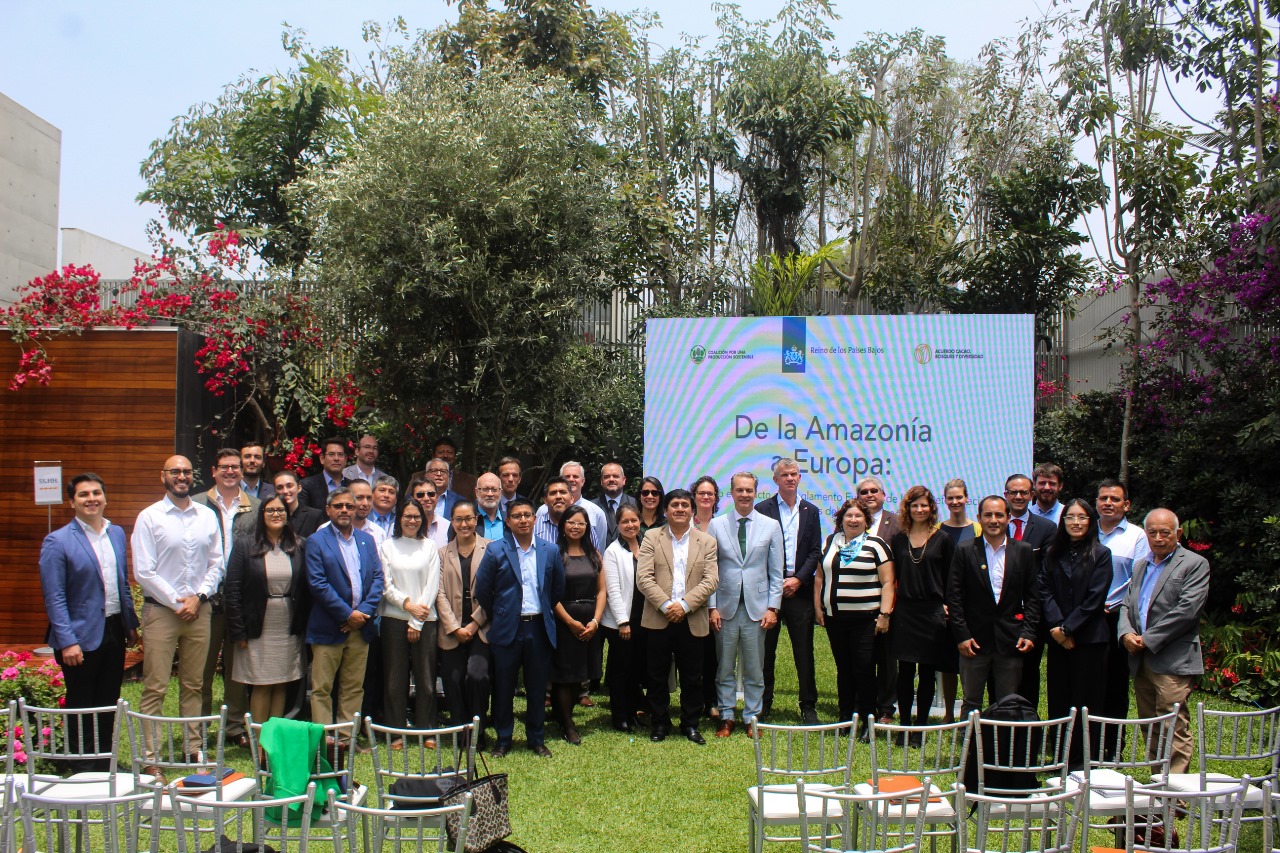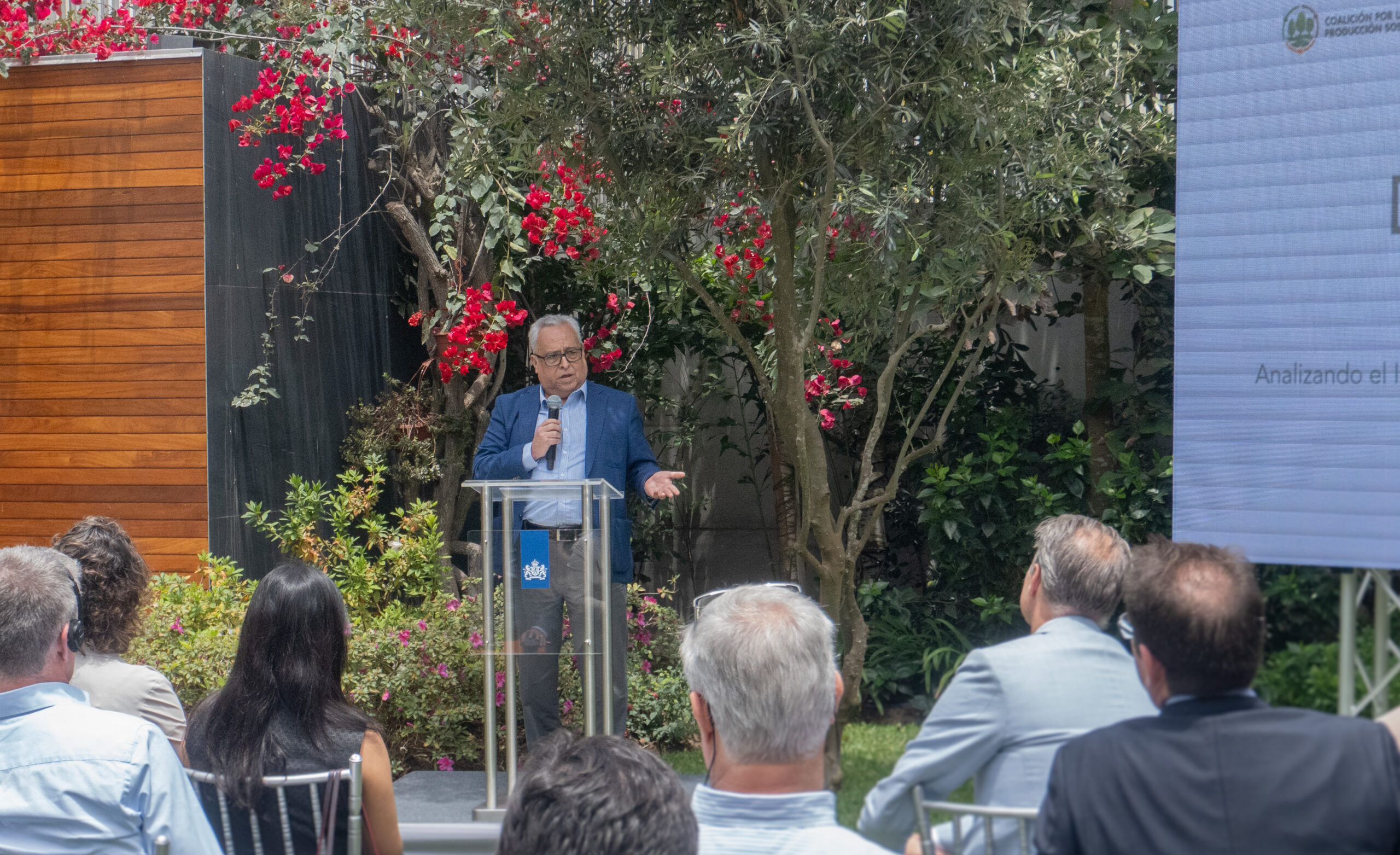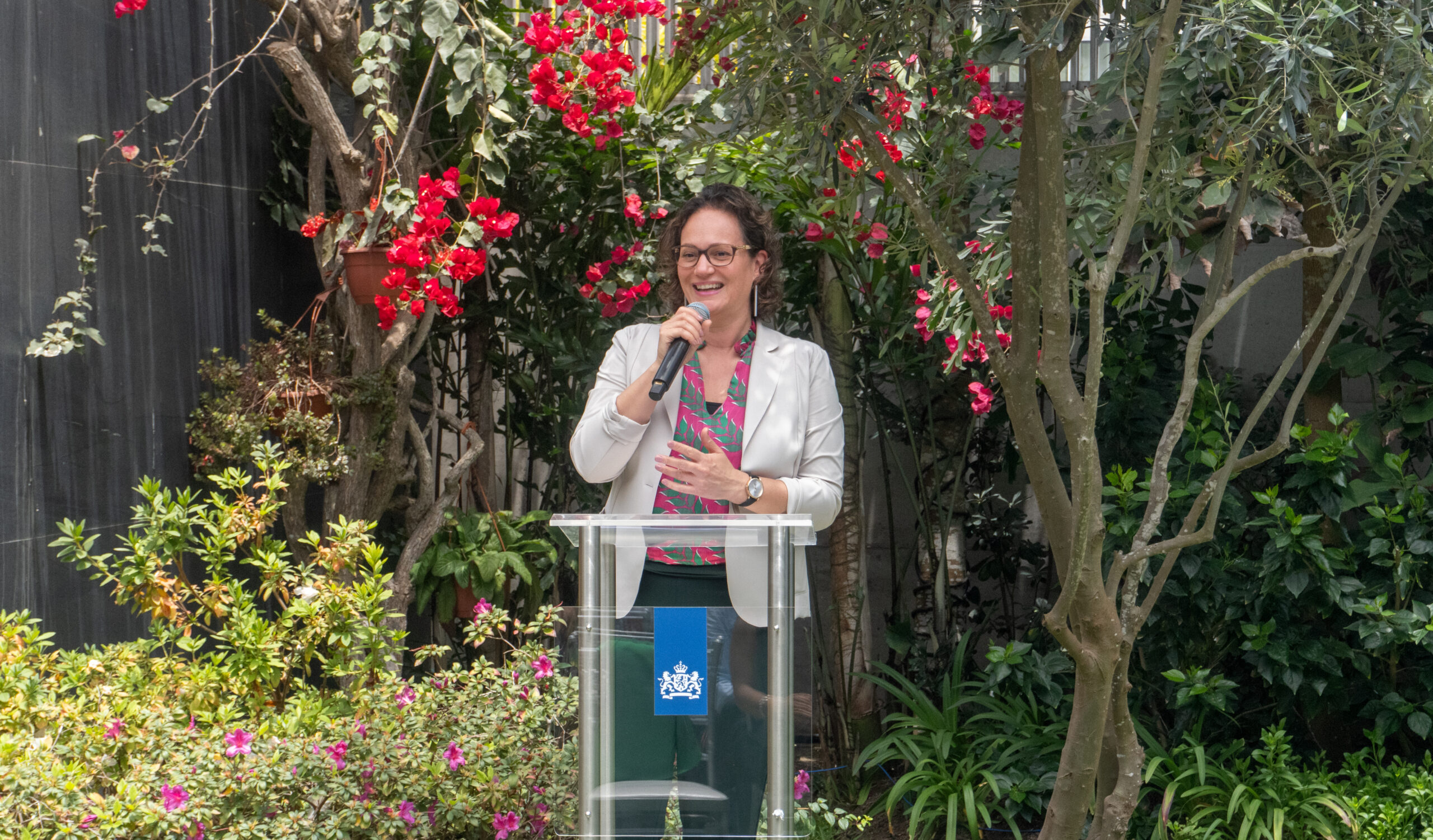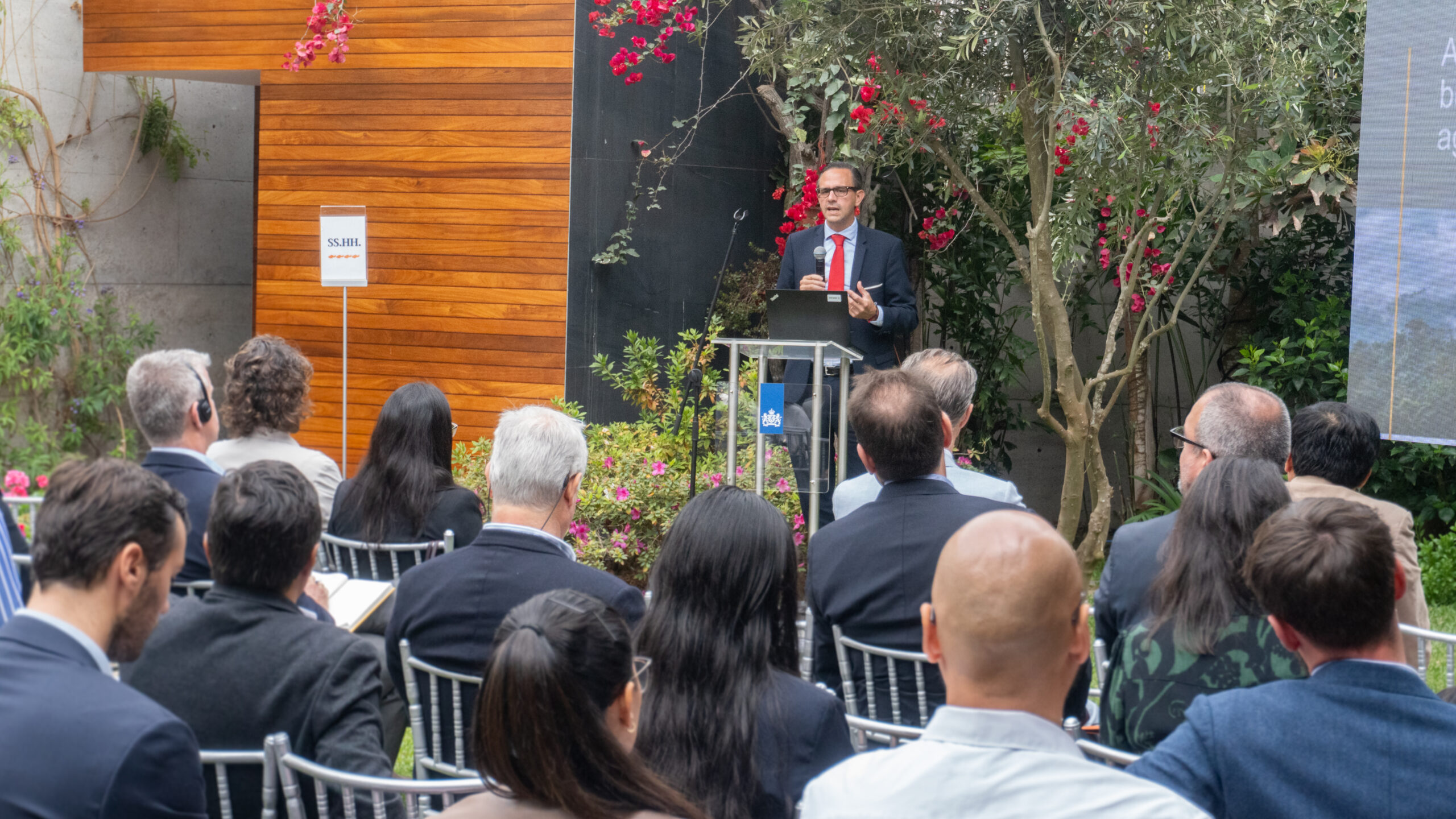


On Thursday, October 12, the event “From the Amazon to Europe: Analyzing the Impact of the European Regulation on No Deforestation in the Coffee and Cacao Sectors” was held at the residence of the Ambassador of the Netherlands in Lima. The objective of this event was to evaluate the actions to be taken to guarantee the conservation of forests while ensuring the continuity of Peruvian coffee and cocoa exports to the European market in the context of the new European Union Deforestation Regulation (EUDR).
According to the Ministry of Agrarian Development and Irrigation (MIDAGRI), coffee is Peru’s leading agricultural export product and Peru is the seventh largest coffee exporter in the world. Likewise, cocoa is currently positioning itself in international markets as a high quality and high value product, in addition to having a high social and economic impact on thousands of producer families. The value of exports to the European Union from both chains totaled more than US$730 million in 2022. This scenario can continue to grow and prosper if Peru can adapt to the new European regulations that will come into force after December 2024.
According to the European Union Parliament, this new regulation aims to address climate change and the loss of forests and biodiversity. To achieve this, companies are required to ensure that their products have not caused deforestation or forest degradation after December 31, 2020, by issuing a “due diligence” statement.
“This regulation is due to three main reasons: the first is the large role of the EU in deforestation, since it is estimated that 40% of deforestation is generated by agricultural production destined for Europe; the second is that voluntary certifications have not been sufficient to reduce deforestation; and the third is that companies that are doing things right are having disadvantages compared to those that do nothing,”

In this context, the EUDR Impact Study on the coffee and cacao chains has been developed with the support of Solidaridad and the Amazon Business Alliance, a platform led by USAID, the Government of Canada and Conservation International, under the framework of the Cacao, Forests and Diversity Agreement (an initiative of the Coalition for Sustainable Production).
The study, presented at the event, estimates the economic and social impact that the regulation would have on these sectors and identifies the main challenges that producers will face in order to comply with the standard and remain in the important European market. These challenges include obtaining information at the farm level, traceability and monitoring, legal production in accordance with national land use legislation, among others.

“The sectors are not prepared to maintain exports to the European Union, mainly due to lack of initial attention to those aspects that require coordinated work by the State, and with all the actors,” says Angélica Fort, manager of Sectoral Agreements for Sustainable Production for Solidaridad. “A coordinated work, not only could make us comply with the standard, but also increase our exports in the following years. We require a sectoral transformation towards competitiveness and sustainability, as the sector has been disjointed for a long time.”
Several experts present at the event agreed that, in order to achieve this sector transformation and long-term sustainability, it is necessary to increase profitability and productivity in the field. To this end, Fort mentioned the importance of a good communication system that provides information on production costs, promotes formality, and facilitates access to technology and services for producers.
The study also points out the importance of working in coordination with the State and its responsibility to ensure legal certainty in the short term. This synergy includes data collection and monitoring of non-deforestation, both indispensable requirements to ensure compliance with the standard.

In the face of these challenges, the Peruvian government has been making notable progress, such as georeferencing and agrarian registration.

"We have the referential location of about 80% of cacao, coffee and palm producers in the Agrarian Producers Register, although most of the plots still do not have a precise georeferencing," says Javier Martinez, director of the Directorate of Economic Studies of MIDAGRI.
The representatives of various sectors present at the event stressed the importance of bringing dialogue and communication between companies, consumers and producers closer together, with a view to more sustainable sectors. In this way, they concluded, European regulation could be presented as a great opportunity.